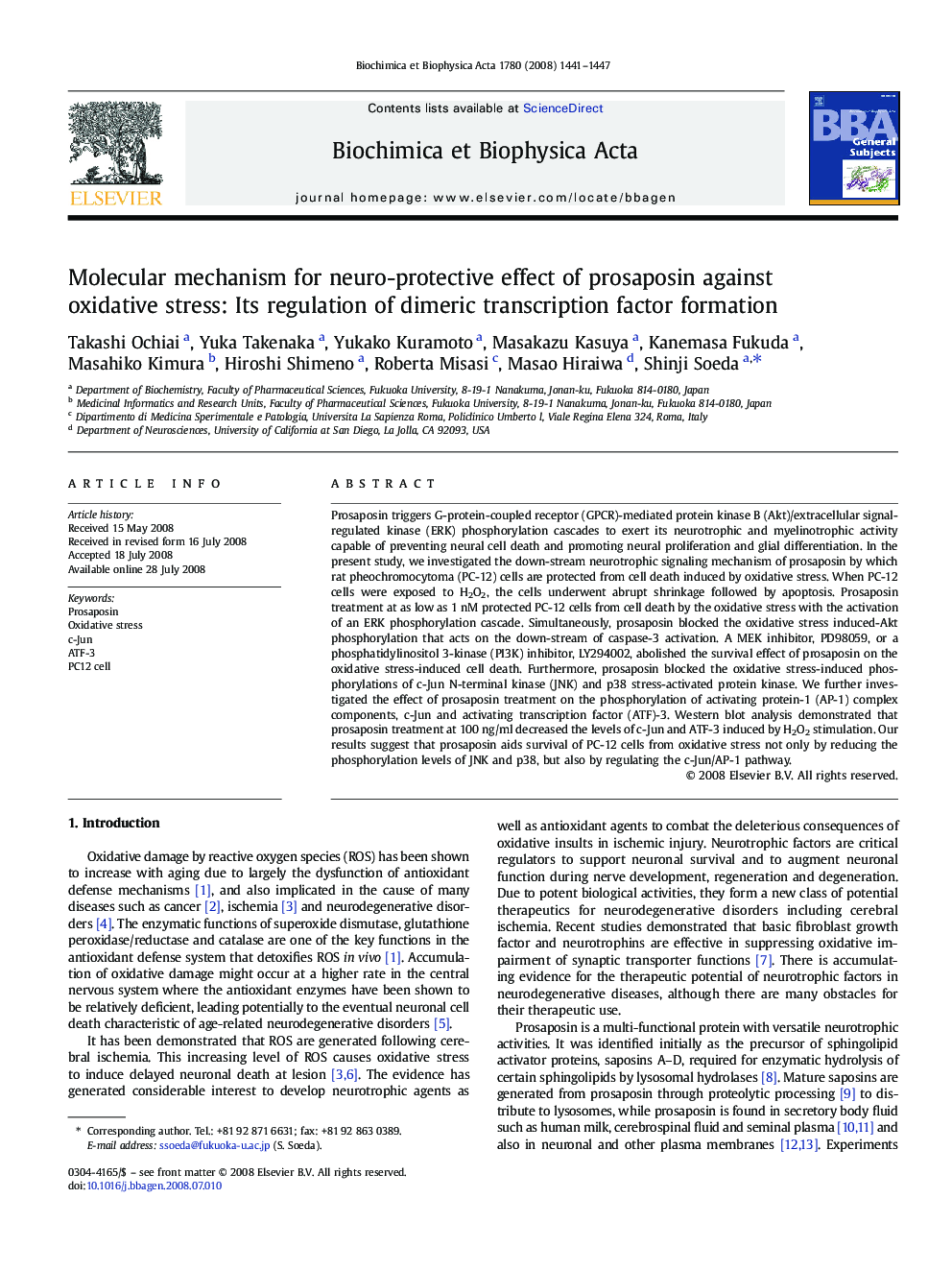| Article ID | Journal | Published Year | Pages | File Type |
|---|---|---|---|---|
| 1948157 | Biochimica et Biophysica Acta (BBA) - General Subjects | 2008 | 7 Pages |
Prosaposin triggers G-protein-coupled receptor (GPCR)-mediated protein kinase B (Akt)/extracellular signal-regulated kinase (ERK) phosphorylation cascades to exert its neurotrophic and myelinotrophic activity capable of preventing neural cell death and promoting neural proliferation and glial differentiation. In the present study, we investigated the down-stream neurotrophic signaling mechanism of prosaposin by which rat pheochromocytoma (PC-12) cells are protected from cell death induced by oxidative stress. When PC-12 cells were exposed to H2O2, the cells underwent abrupt shrinkage followed by apoptosis. Prosaposin treatment at as low as 1 nM protected PC-12 cells from cell death by the oxidative stress with the activation of an ERK phosphorylation cascade. Simultaneously, prosaposin blocked the oxidative stress induced-Akt phosphorylation that acts on the down-stream of caspase-3 activation. A MEK inhibitor, PD98059, or a phosphatidylinositol 3-kinase (PI3K) inhibitor, LY294002, abolished the survival effect of prosaposin on the oxidative stress-induced cell death. Furthermore, prosaposin blocked the oxidative stress-induced phosphorylations of c-Jun N-terminal kinase (JNK) and p38 stress-activated protein kinase. We further investigated the effect of prosaposin treatment on the phosphorylation of activating protein-1 (AP-1) complex components, c-Jun and activating transcription factor (ATF)-3. Western blot analysis demonstrated that prosaposin treatment at 100 ng/ml decreased the levels of c-Jun and ATF-3 induced by H2O2 stimulation. Our results suggest that prosaposin aids survival of PC-12 cells from oxidative stress not only by reducing the phosphorylation levels of JNK and p38, but also by regulating the c-Jun/AP-1 pathway.
